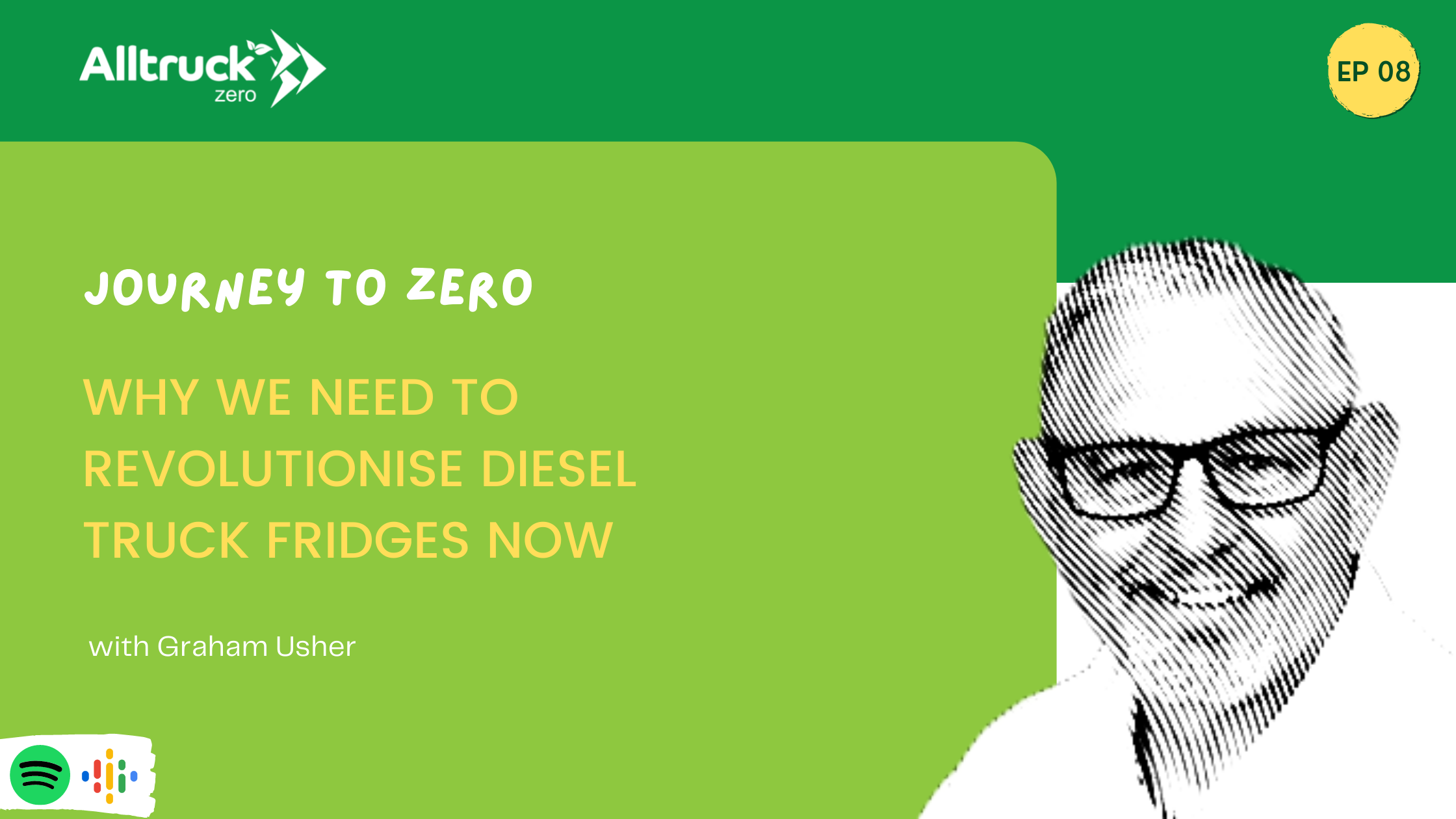
On the Journey to Zero podcast this week is Graham Usher, the Managing Director at Hultsteins UK, who is on the show to talk about hydraulic drive truck refrigeration units and how they could help us move away from the ‘dirty’ diesel that currently powers most of our truck fridges today.
Currently, diesel truck fridge units aren’t regulated in the same way truck engines are as they are classed as ‘non-mobile machinery’. This means that the emissions coming out of them are quite startling. In fact, the Zemo Partnership reported that a Euro 6 truck with a diesel fridge unit will emit approximately 500% to 1000% more diesel particulate matter per mile driven than without one.
Hultsteins used to make diesel fridges; however, after taking a step back they saw that the future was not going to be diesel. Therefore, they decided to stop producing diesel fridges 20 years ago. They also found that it was not only better for the environment, but there was an economic business case for hydraulic drive fridges.
Listen to the full episode here:
[5:22] Hannah: Do truck fridge units have different emission standards to trucks themselves?
Graham: There’s no legislation around them. Truck fridges are in an unusual space, as they’re not controlled by the DfT or DEFRA. But it seems to strange to me that you have the ULEZ and CAZ zones coming downstream and whilst operators are being forced to reduce the emissions to Euro 6 level, or better, but nobody seems to care about the diesel truck fridge engine that’s behind it. But I’m sure things will change.
[9:45] H: Can you explain how your fridges are different to the diesel fridge units?
G: People all want to go green, and our lives are going to change as we all move to go carbon neutral. When you look at that aspect of it, this is really low-hanging fruit. In fact, these are strawberries because there’s massive direct saving in terms of cost as there’s no fuel or maintenance costs. But you’ll also reduce your emissions by 98%.
[18:36] H: Some technology won’t be ready for 10, 20 years and we do need to act now to help reduce emissions.
G: Yes, and Ecogen is a transition technology. In 10 years’ time, when trucks are fully electric or hydrogen driven, Ecogen will no longer be required. But for now, it can play a valuable part in reducing costs and emissions.
[25:32] H: Do you have fridges that work on electric vehicles?
G: Yes, we already do. We’re currently looking at ways to make this more and more efficient.
They also work really well on LNG and CNG trucks.
[30:43] H: What do you think we’ll see in the future of transport?
G: I think you have to look at what the manufacturers are doing, and when you look at the investment that’s going into batteries – they know exactly where they’re going in regard to this investment.
The way I see it, you’re going to see battery power up to 18t and I think hydrogen is going to play a bigger part for 18t +.
But I think diesel has still got a very valid part to play, especially when you can drop it in with HVO (hydrotreated vegetable oil).
For more information about Hultsteins UK and their fridges, you can follow them on LinkedIn and YouTube. Or, alternatively, you can visit their website at: hultsteins.co.uk
To find out more about alternative fuels, eHighways, and the effect of tyre dust, you can listen to our other podcast episodes via Spotify, Google Podcasts, or Anchor. Happy listening!